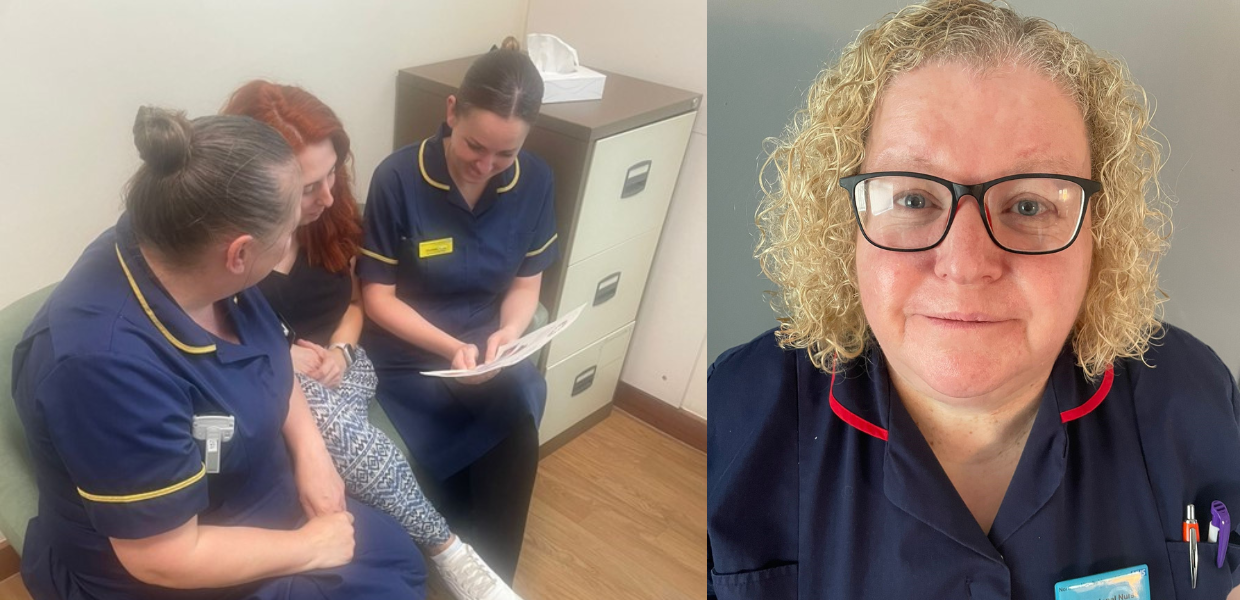A drive round a hospital car park, a sing song, or even decorating a treatment room as a theme from a film is all in a day’s work for a small team of nurses.
As part of this year’s Learning Disability Week, which starts today (Monday 16 June), we are shining the spotlight on our Vulnerabilities Team which works across our hospitals in Scunthorpe, Grimsby and Goole, and our Enhanced Care Team at Hull Royal Infirmary and Castle Hill Hospital.
The theme for this year’s week, which is organised by the charity Mencap, is ‘Do you see me?’ It is all about challenging some of the barriers people who have learning disabilities face.
Jackie Fenwick, Lead Nurse for Vulnerabilities across the NHS Humber Health Partnership, said: “Our role is to make sure patients with a learning disability have equitable access to healthcare, as well as timely treatment. It is about making sure everyone is seen, heard and valued when they need help.”
There are different types of learning disability, which can be mild, moderate, severe or profound. In all cases a learning disability is lifelong. Someone with a mild learning disability may only need support with things like getting a job. However, someone with a severe or profound learning disability may need fulltime care and support with every aspect of their life – they may also have physical disabilities.
Jackie said: “Hospital environments can be overwhelming and frightening for everyone, and this is especially true for individuals with a learning disability. Suddenly they are out of their routine. There are loud noises, unfamiliar smells, lots of people, medical jargon, medical equipment, tests and procedures that they don’t understand. They don’t feel safe or secure and they can get very scared and distressed. It is our role to plan ahead for their visit, if we can, to help ease their anxieties by working with them and their carers to make any necessary reasonable adjustments.”
It could be something as simple as:
- Their appointment being made for the start or end of an outpatient clinic
- A double appointment so they have more time
- Having access to a quiet side room while they wait to be seen
- Having access to sensory equipment and support
- Several visits to the hospital beforehand to help with familiarisation and desensitisation
- Distraction techniques, such as singing, toys, or decorating the treatment area in a theme they love.
Jackie said also, where possible they offer a one stop service, where the patient may come in for a procedure in which they need sedation or a general anaesthetic. “Staff will carry out the procedure, such as gallbladder removal, and while they are asleep, we may cut their nails, check their teeth, take blood and any other tests which may be stressful if they were awake. It is all about reducing their anxiety and stress levels.”
Jackie said the teams work closely with families and carers, as well as other agencies, to ensure a person’s care is tailored to their requirements before their appointment, during their visit and after their discharge. “Our work does not stop once they leave us, as we work hard to ensure people have the follow up care they require,” said Jackie.
The team in Hull recently had two people who required x-rays but were reluctant to go to the department, let alone have the tests. Jackie said: “Both people loved music, so our nurse staged an impromptu singalong which put them at enough ease, for them to have the required x-rays.”
One patient who the Vulnerabilities Team cares for is Tracy. She said: “I am articulate and intelligent but because of my disability I find accessing healthcare difficult. I used to get anxious in my outpatient hospital appointments as I knew the time is limited and precious, and I was scared I wouldn’t be able to communicate what I needed to.”
Noisy waiting areas with lots of people, radios playing in the background, hot and stuffy rooms, as well as people using computers when she is talking to them all overstimulate Tracy and make her feel anxious.
Tracy said: “I am overwhelmed by all of the environmental stimuli and I have an appalling memory and forget everything the minute I leave the consulting room. Having someone with me who understands my triggers and can advocate for me helps to make it better.
“I particularly want to thank the Vulnerabilities Team who now support my outpatient hospital care. I would not be able to access the care I need without them.”
One thing carers can help with is ensuring people have Hospital Passports with them. It is a simple booklet which includes the person’s name, and what they like to be known as, as well as things health care workers must know about them such as the language they speak and how they communicate, things that are important to them such as how they take their medication, how to recognise they are in pain, and their likes and dislikes.
Jackie added: “A learning disability doesn’t mean people can’t live happy, fulfilling or successful lives. What it does mean is at times we need to work with them in a different way to other patients to ensure we can give them the care they need. I feel privileged to play a part in such rewarding work.”
